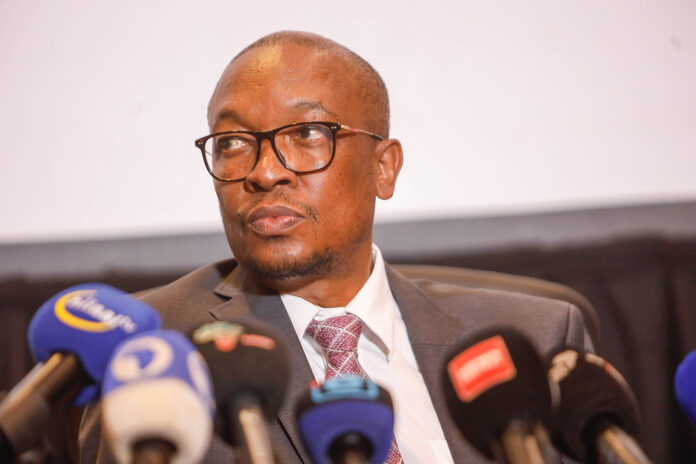Second to the outcome of the life-changing 2024 elections, South Africans are once again confronted by one of the biggest challenges to their dream of an egalitarian post-apartheid: continuing racial disparities and finding a solution to the quagmire.
A major cause for the prevailing situation is the recent release for public comment of the Draft Transformation Fund by Minister for Trade, Industry and Competition Parks Tau. The fund is about aggregating various empowerment initiatives under a unified framework, thereby enhancing efficiency and reducing fragmentation.
Through its centralised approach, the fund seeks to foster coherence across government and private sector programmes to ensure that resources are deployed effectively
to maximise impact and accelerate B-BBEE compliance.
Then there is ActionSA’s announcement about a plan to replace the country’s current means of achieving social and economic justice—the B-BBEE driving policies.
A key proposal in this plan includes establishing an Opportunity Fund, which the party suggests could be financed by a 5% levy on company profits. This fund is supposed to replace the B-BBEE framework and focus on investments in education, entrepreneurship and infrastructure in disadvantaged communities.
This is an opportunity for South Africans to develop solutions that can address the legacies of poverty, unemployment and racial inequalities.
They can do so by unpacking the two interventions concerning their ability to address the challenges they continue to face.
A key question to ask in that regard is how each of these announced interventions has the potential to deliver them from the shackles of poverty, unemployment and racial inequality.
This they could achieve by, for example, interrogating the genesis of each intervention and if that genesis is in sync with their aspirations of a qualitative life in a democratic, non-racial South Africa.
For example, as Tau points out that the Draft Transformation Fund is committed to redress driven by the B-BEE framework.
This is important because B-BBEE is explicitly designed to redress the economic injustices caused by apartheid. To this end, it uses mechanisms such as black ownership, management control and preferential procurement to ensure that black South Africans gain meaningful participation in the economy.
On the other hand, their identification of the BEE genesis and their affinity with it should not blind South Africans to some of the shortcomings experienced in the implementation of B-BBEE, such as corruption, as well as the continuing domination of the township economy by giant retailers in the form of shopping malls.
They should, therefore, ask questions about how the fund is geared towards addressing these challenges.
The most important factor in the whole assessment process is that they should not fall into the trap of conflating the need for B-BBEE as a tool to drive redress and economic transformation, and how it has so far been implemented.
What is needed is an understanding that while B-BBEE has faced challenges, these are issues of implementation rather than principle.
In assessing the ActionSA suggestion for the replacement of B-BBEE with an Opportunity Fund, it is important to ask how such an intervention would achieve social and economic justice.
Simply investing in education, entrepreneurship, and infrastructure does not guarantee that black South Africans will have greater control over economic assets or decision-making power in the economy.
Without mechanisms for ownership and management control, existing power structures and inequalities may persist.
B-BBEE’s pillars of ownership, management, skills development and preferential procurement are designed to ensure that black South Africans are not just beneficiaries, but active participants and leaders in the economy.
An opportunity fund that lacks these targeted measures risks becoming a generic development initiative, rather than a tool for justice and transformation.
By efficiently supporting black-owned SMMEs through interventions such as preferential procurement and enterprise development, B-BBEE can help stimulate employment and innovation, thereby improving production and market expansion.
This is the dream that all South Africans can make possible through their input to the Draft Transformation Fund.
Such inputs should be about ensuring that the fund becomes an instrument that will contribute towards economic growth, the acceleration of equal economic participation by the historically disadvantaged, as well as maintaining and creating jobs that will alleviate poverty.
• Ido Lekota is a veteran journalist



